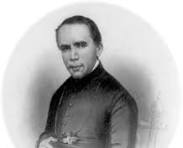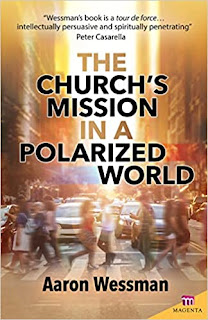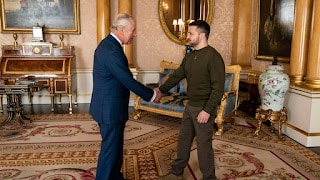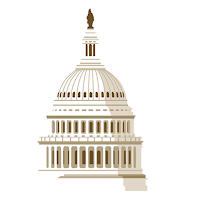Today is the 12th day of Christmas and also (in the United States) the commemoration of the great missionary priest and bishop, Saint John Neumann, who lived from 1811 to 1860, and is one of the patrons of the Paulist Fathers.
In June 1851, Fr. Isaac Hecker, then less than two years ordained and just recently returned to America from Europe, wrote to his good friend and mentor, Orestes Brownson. “I have thought over the subject we spoke of,” Hecker wrote, “& I am sure that if you could make a Retreat under Rev. f. Neuman the Rector at Baltimore for 8 or 10 days, you would find in him the kind of director your soul needs.” There is no evidence that Brownson ever followed upon Hecker’s suggestion, and the next time Neumann was mentioned in one of Hecker’s letters was over a year later, merely noting that the now Bishop Neumann would be preaching at Vespers on the day of the dedication of the Most Redeemer Church on East 3rd Street. As Postulator for Hecker’s Cause, I lament our limited information on Hecker’s interactions with the great 19th-century American saint we celebrate today.
Born in Hapsburg-ruled Bohemia in 1811, Saint John Neumann immigrated to NY in 1836, arriving with $1 in his pocket. (Neumann had studied in seminary in his homeland, but could not be ordained because there were already too many priests in his diocese.) Ordained a New York priest by Bishop Dubois, Neumann spent several years serving German-speaking immigrants in upstate New York, before joining the Redemptorist Order in 1840, eventually becoming Provincial, and then in 1852 Bishop of Philadelphia. He is especially famous for his devotion to young people and their education. Under his administration, the number of parochial schools in his diocese increased from one to 200. (Hence today’s Collect’s references to fostering « the Christian education of youth » and, in a nod to Philadelphia, bing strengthened « by the witness of brotherly love. ») Canonized in 1977, he was the third American citizen to be so honored.
In today’s Gospel, Jesus calls Philip to become his disciple. Philip responds by extending himself farther, finding Nathaniel of Cana, also known as Bartholomew, and inviting him to Come and see. Nothing is more basic to true discipleship than this impulse to share it with others. That was what inspired Saint John Neuman to extend himself, to cross the ocean, to become a missionary priest in a new country, and eventually the bishop mid-19th-century American needed. As Pope Paul VI said in his homily at Saint John Neumann’s canonization: “He was close to the sick; he was at home with the poor; he was a friend to sinners. And today he is the honor of all immigrants, and from the viewpoint of the Beatitudes the symbol of Christian success.”
Homily for the Memorial of Saint John Neumann, Saint Paul the Apostle Church, NY, January 5, 2024.





